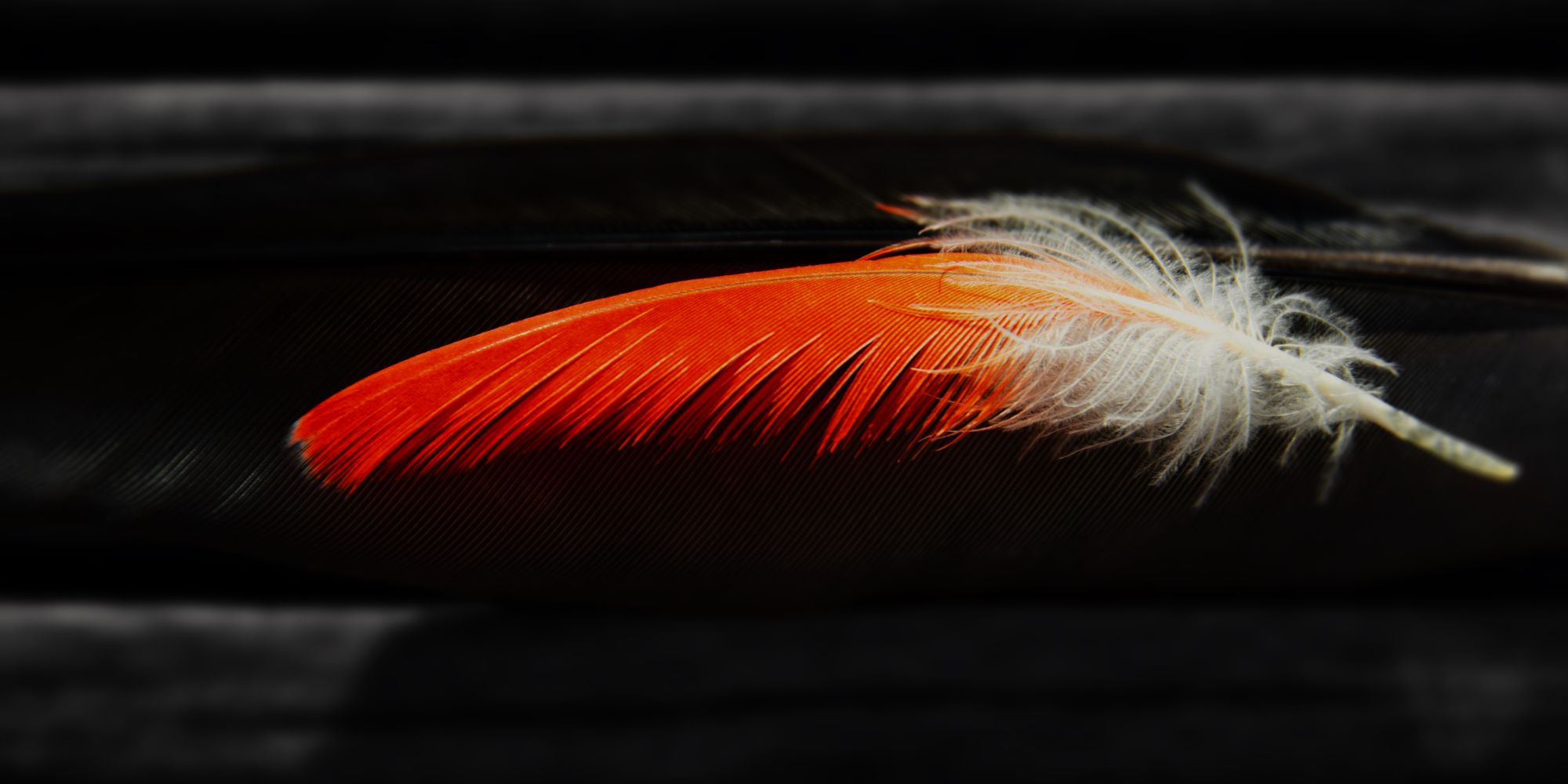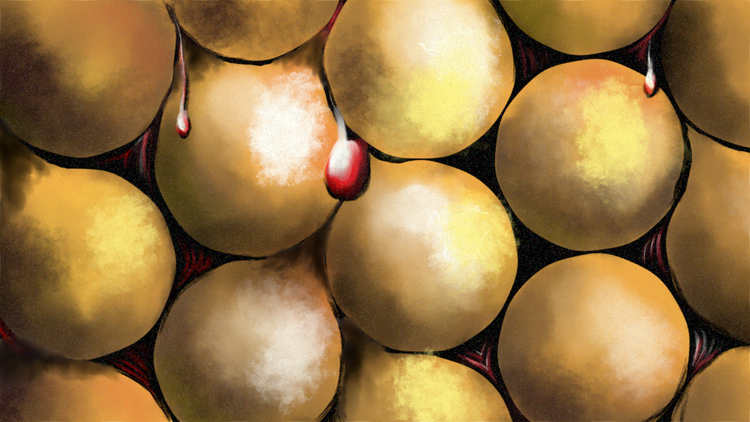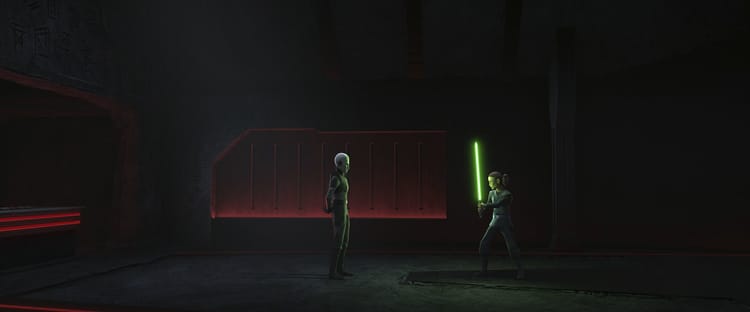
Running Commentary 12/16/2024
Hello,
A reminder that I'll be taking the next two weeks off from writing this newsletter, so I'll have to take the opportunity now to wish you all a Merry Christmas and a Happy New Year.
Anyway...
Watching...

Skeleton Crew
- Jod Na Nawood is now properly part of the show. He's apparently going by a few different names, including "Crimson Jack", which I take to be a nod to the pirate from the old '80s Marvel Star Wars comic. He is, in fact, the masked pirate from the beginning, not a Jedi; that little mystery about his character was played with a bit in this episode but was revealed to all relevant parties by the end, which I think is good. That's the kind of thing that could get dragged on through the whole season, especially in a kids' show which seems to love that sort of imposter plot, but I think it would have gotten stale quickly.
- The owl=cat lady was a neat new alien. There's not a lot of flying peoples in Star Wars, probably because that's a lot more effects work to do. Also, add Alia Shawhat to The List.
- We're three episodes in and, to a degree, it feels like the show still hasn't fully kicked off yet. It's still set-up. Thre is, at least, the start of a map for them to follow; hopefully the adventure can really kick off in future episodes. I'll have three to cover next RC.
Playing...

Warframe
The Warframe 1999 update is finally out. I've been playing it a fair bit, and hope to a bit more during time off over the holidays. For now, I've managed to farm up the new 'frame, Cyte-09 (which is the usual bounty farm + pity system, not too bad) but right now the only thing I can really talk about is the new quest, "The Hex":
- This might be the best quest Warframe has ever put out, at least since "The Second Dream". It's not as conclusive as "The New War" or as touching as "The Sacrifice", but as a balance of introducing meaningful new elements, telling a compelling story, and being a fun time to play, I think this is the best quest in years.
- The protoframes were all pretty cool new characters, except I kind of hate Amir Beckett, the proto-Volt. He's the comic relief and I found his lines much more annoying than funny. I did wind up playing as him during the part of the quest where you pick a protoframe to run point, mostly because I'd played Excalibur a bunch already at that point and I'm more familiar playing Volt than Trinity or Mag.
- The gameplay of the quest was decently challenging, as is fitting for something that comes at the end of current game progression. It took me a couple tries to beat the tank in the beginning. Otherwise I was able to get through the quest without getting either frustrated or bored.
- I missed Amir's first line so I got really confused why everyone was calling me "Marty".
- The ending of the quest is quite open-ended (for now; It seems we might be able to do something more conclusive later on after ranking up with the Hex; I'm not sure if this is in the game already, waiting to be unlocked, or if it will be a future update) but I must say that fist pound was an immensely satisfying moment.
- It seems Wally is a bit upset that the Orokin stole one of his fingers to run their spaceships, which is fair, I guess. I really do think Wally works better as the ongoing villain than Ballas did.


Bird of the Week
There's an old, seemingly very old, European folktale about birds, going back as far as Aristotle at least but now best preserved in the culture of Ireland: once, all the birds gathered to choose which would be their king. They held a contest to see which could fly the highest; that bird would be king. The eagle flew very high, and when the other birds tried to fly higher, they became too tired and fell back to the ground. But, when the eagle landed to accept the crown, the smallest bird, the wren, popped out from the eagle's feathers. The clever wren had ridden on the eagle's back and had thus technically flown higher. Thus the wren became the Kind of Birds. The moral of the story is basically "work smarter, not harder."1
There are, of course, a few issues of realism in this story: eagles do fly very high, but cranes and geese both fly much higher. Birds don't have a king. And the wren is not the smallest bird, not in the world and not even in Europe where the story originated. There are birds even smaller than the King of Birds, and they are, fittingly, called kinglets.
So-named for the conspicuous crown-marks on their heads, the kinglets are the on-average smallest family of songbirds. (A few of the tyrant-flycatchers are slightly smaller, but most are much bigger.) They are found throughout the Northern Hemisphere. Two species are found in North America: the ruby-crowned (the largest and most distinct of the family) and the golden-crowned, which is the continent's smallest songbird. Golden-crowned kinglets are largely migratory, breeding in Canada and coming down to the United States and northern Mexico for the winter, though there are some populations who stay in mountainous regions of the U.S. and Mexico year-round. Michigan sits in the border region between the summer and winter ranges; once, that border was much farther north, as the kinglet's range has been expanding in recent decades as forests have rebounded from their nadir in the early 20th Century.2 Since the hummingbirds leave the U.S. in winter, the golden-crowned kinglet is generally the smallest bird present in a given area.
Kinglets mainly eat insects, specifically those found in the buds and bark of plants, as well as insect eggs; this is what makes them winter-hardier than the similar warblers, who mainly eat insects found in leaves and who must thus leave in Autumn.3 Kinglets migrate less consistently and less far than warblers, seemingly because the migration of both is mainly driven by food.
To science, the golden-crowned kinglet is Regulus satrapa. The genus name is the diminutive form of the Latin rex, meaning "king"; "regulus" thus means "little king". The species name is Persian: a satrap (from the Old Persion for "country protector" was an official placed in charge of a portion of the Achaemenid Empire, a governor of a province.4 In English, "satrap" has become an unusual generic term for any high-ranking subordinate.5
- Wills, Matthew. “Wren Folklore and St. Stephen’S Day.” JSTOR Daily, December 16, 2020. https://daily.jstor.org/wren-folklore-and-st-stephens-day/.
- Swanson, D. L., J. L. Ingold, and R. Galati (2020). Golden-crowned Kinglet (Regulus satrapa), version 1.0. In Birds of the World (A. F. Poole, Editor). Cornell Lab of Ornithology, Ithaca, NY, USA. https://doi.org/10.2173/bow.gockin.01
- Thobaben, Robert G., Jr, Teresa A. Thobaben, and James L. Ingold. “Fall Migration of Passerine Birds in Ohio: A Co-operative Study by the Ohio Bird Banding Association.” Digital Commons @ University of South Florida, n.d. https://digitalcommons.usf.edu/nabb/vol12/iss2/2/.
- Jobling, J. A. (editor). The Key to Scientific Names in Birds of the World (S. M. Billerman et al. editors), Cornell Laboratory of Ornithology, Ithaca.
- “Satrap.” In Merriam-Webster Dictionary, n.d. https://www.merriam-webster.com/dictionary/satrap.
Curation Links
The Fruit Detective | Mark Schapiro, Smithsonian Magazine
“Dalla Ragione has spent more than a decade scouring the masterpieces of 15th- and 16th-century art for answers to one of the great questions of Italian agriculture: Whatever happened to the boisterous selection of fruits that, for centuries, were a celebrated part of Italian cuisine and culture? Slowly and indefatigably, she has been rediscovering those fruits, first in archives and paintings and then, incredibly, in small forgotten plots across Italy.”
Recess Duty | Charlotte Pence, Slate
A parent’s experience trying to preserve, indeed reintroduce, recess to their local school. ”What happened in Mobile is emblematic of a national problem more than a regional one…The diminishment of recess at school runs parallel to the diminishment of unsupervised play at home…Indeed, my own childhood spent working in the garden to sell produce at the local farmers market and roaming the neighborhood with friends is something of the past, replaced by structured activities like team sports, day camps, online gaming—and mountains of homework.”
How We Got the Lithium-Ion Battery | Brian Potter, Construction Physics
“It’s perhaps more appropriate to think of the lithium-ion battery not as a single invention, but as a slow, steady accumulation of many inventions that were needed to both make a battery practical and to unlock its full potential.”
Parthenogenesis | Stephen Graham Jones, Reactor
[FICTION] “When their rental truck breaks down, two friends moving cross-country kill time by telling stories about the strange carving in front of the motel where they’re awaiting a mechanic . . .”
See the full archive of curations on Notion







Member Commentary